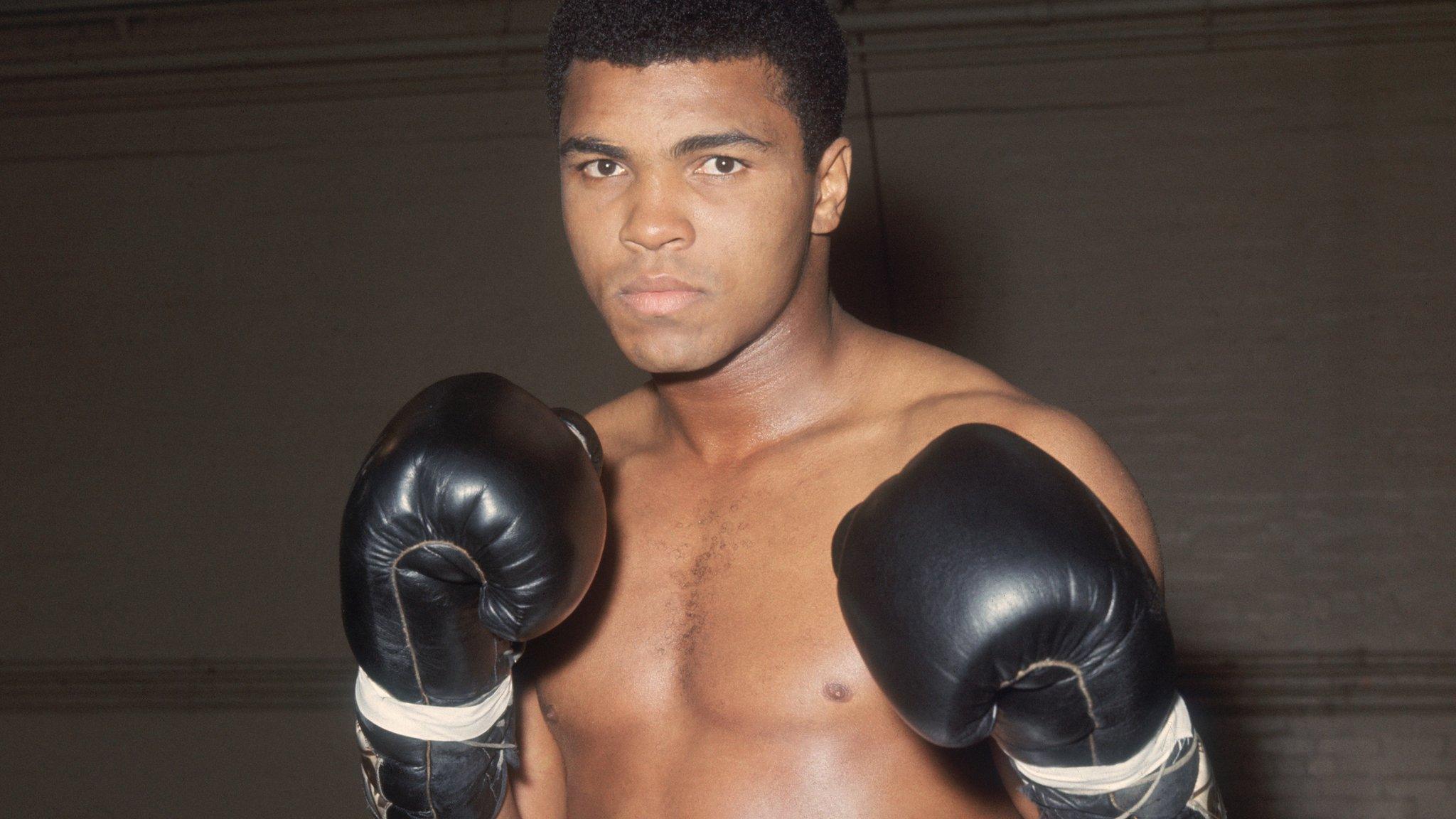Muhammad Ali play puts icons of black America on stage
- Published
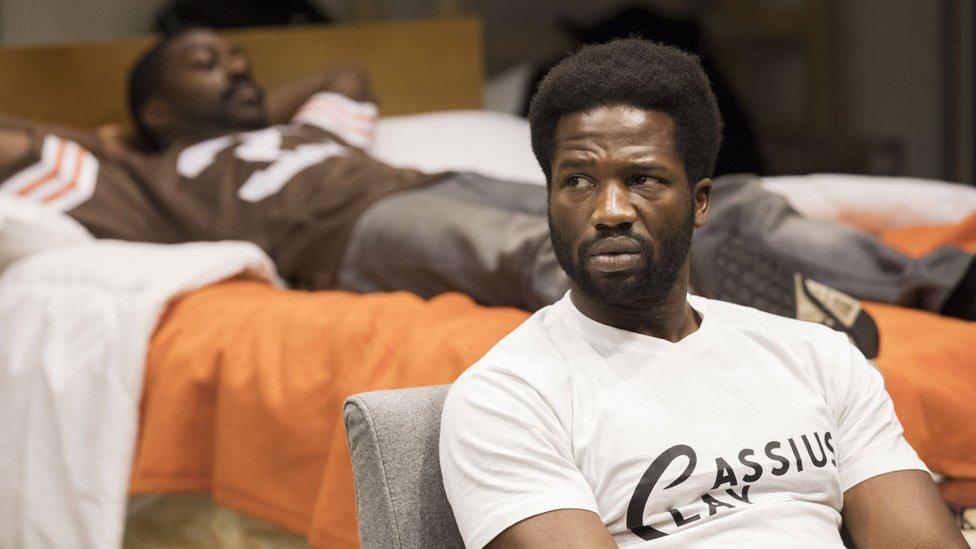
Sope Dirisu, who stars as Muhammad Ali, says people often "sugar-coat Ali's life" and "find it convenient to forget the struggles of the time he lived through"
Few plays open in the West End with an entirely black cast. But the main characters of One Night in Miami, set in 1964, are all icons of black America - including the activist Malcolm X and Cassius Clay, just as he takes the name Muhammad Ali. The actors say wholly black casts are only one way to improve diversity in the theatre.
One Night in Miami isn't really a play about boxing. But it takes its cue from a famous fight in Muhammad Ali's career.
Aged 22, and still known as Cassius Clay, Ali fought Sonny Liston at the Miami Beach Convention Hall. Liston abandoned the fight after the sixth round and Ali's victory made him one of the best-known people in the world.
Kemp Powers' drama - first seen in Los Angeles in 2013 - imagines a meeting a few hours later at the Hampton House Motel in Miami.
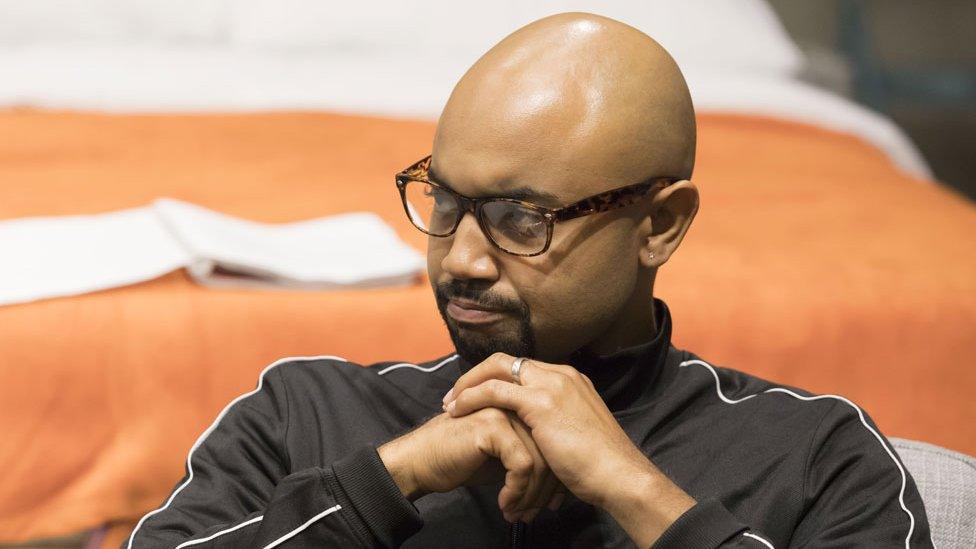
Francois Battiste, who plays Malcolm X, is the sole American in the cast
In the play the boxer is joined by black rights activist Malcolm X as well as singer Sam Cooke and sportsman Jim Brown - who in 1964 is beginning to transition from the National Football League (NFL) to being a screen star. All three men had real-life connections with Ali, with TV footage showing Cooke in the ring congratulating the boxer moments after victory.
Both Cooke and Malcolm X were to meet violent deaths within a year of the action of the play. Ali, seen as the great elder statesman of sport, died in June this year and Brown is still alive at the age of 80.
From these elements, Powers stitches together a powerful one-act drama. There are moments of humour but the story also allows the characters to debate the position of African Americans in the mid-1960s and also now.
By the end of the play, Ali is secure in his decision to emerge in public as a member of the Nation of Islam and ditch what he later termed the slave name of Cassius Clay.
Actor Sope Dirisu, born in London to Nigerian parents, has the task of evoking the young boxer without doing a mere impersonation.
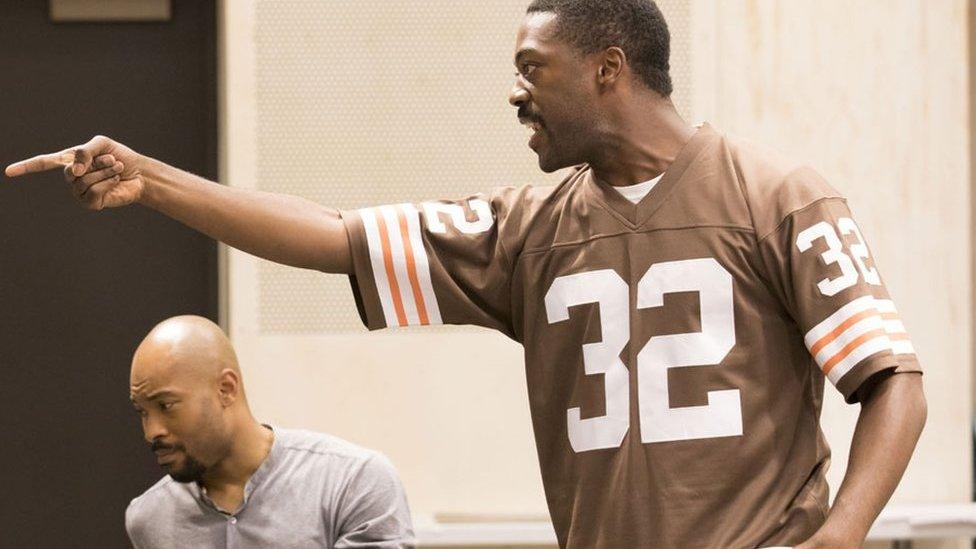
David Ajala, who plays Jim Brown, says of the play shows "a group of guys fighting for different causes but also for a common cause"
"For me it was really important to adopt Ali's physicality," he says. "When I got the call for the part, I was at his fight weight of 95.5kg. However I didn't look like a fighter so I went down the gym.
"I did change my body: it was important to be able to hold myself and stand like a boxer would do. Unfortunately there are no contact scenes but over the 90 minutes of the play there's a sense of the thrill and excitement of a fight in the ring."
Dirisu learnt a lot about Ali preparing for the play.
'Important figure'
"What people forget now is the struggle at the beginning. For the majority of his life he wasn't celebrated - he was distained for being a black heavyweight hero and also for his religious beliefs.
"I think people often like to sugar-coat Ali's life because of the respected figure he became later. People find it convenient to forget the struggles of the time he lived through."
Francois Battiste, who plays Malcolm X, is the sole American in the cast.
"When I was 12 I read Malcolm X's autobiography. And in high school I memorised some of his major speeches - he seemed an important figure to me.
"In the play Malcolm X is at a point of change in his life - but maybe all the characters are. He's about to make a separation from the Nation of Islam: he no longer felt comfortable in the organisation but in February 1964 he is clearly a sort of mentor to Muhammad Ali."
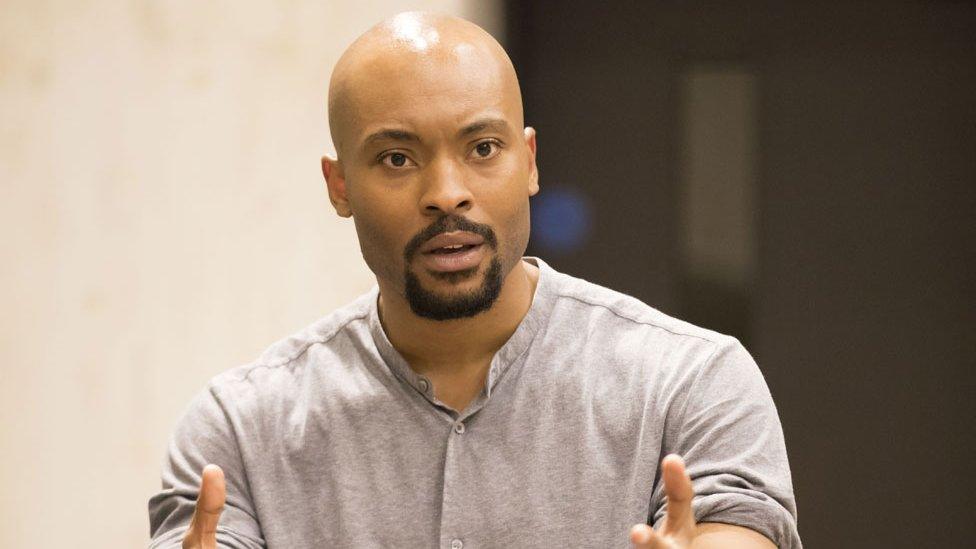
Arinze Kene, who plays Sam Cooke, says of diversity in casting: "The fact that the situation is getting better shows not how great things are now, but only that they used to be even worse"
But all the actors agree the play shouldn't be seen as a political tract.
Dirisu says Powers told the cast his play should feel like watching best friends in a room.
"Even in previews we've felt the audience picking up on that - I feel I'm on stage with my brothers. The energy is amazing."
David Ajala, playing Jim Brown, recalls Powers saying one thing that really struck him.
'Superheroes'
"Kemp said this was the play he would love to have seen as a 16-year-old - the black Avengers," he says. "It's a group of guys fighting for different causes but also for a common cause. And they're held in high regard and are iconic people.
"The simplicity of that and the excitement of it has really resonated with me: in that room we're all superheroes in our own way, in each other's company."
Clearly all the actors are very aware of the current debate in the theatre and in film about the chances black performers do or don't get.
Ajala says that in considering the role he didn't primarily think about the all-black cast.
"I just saw it as a really interesting and unapologetic story with a very different texture. That's what mattered to me."
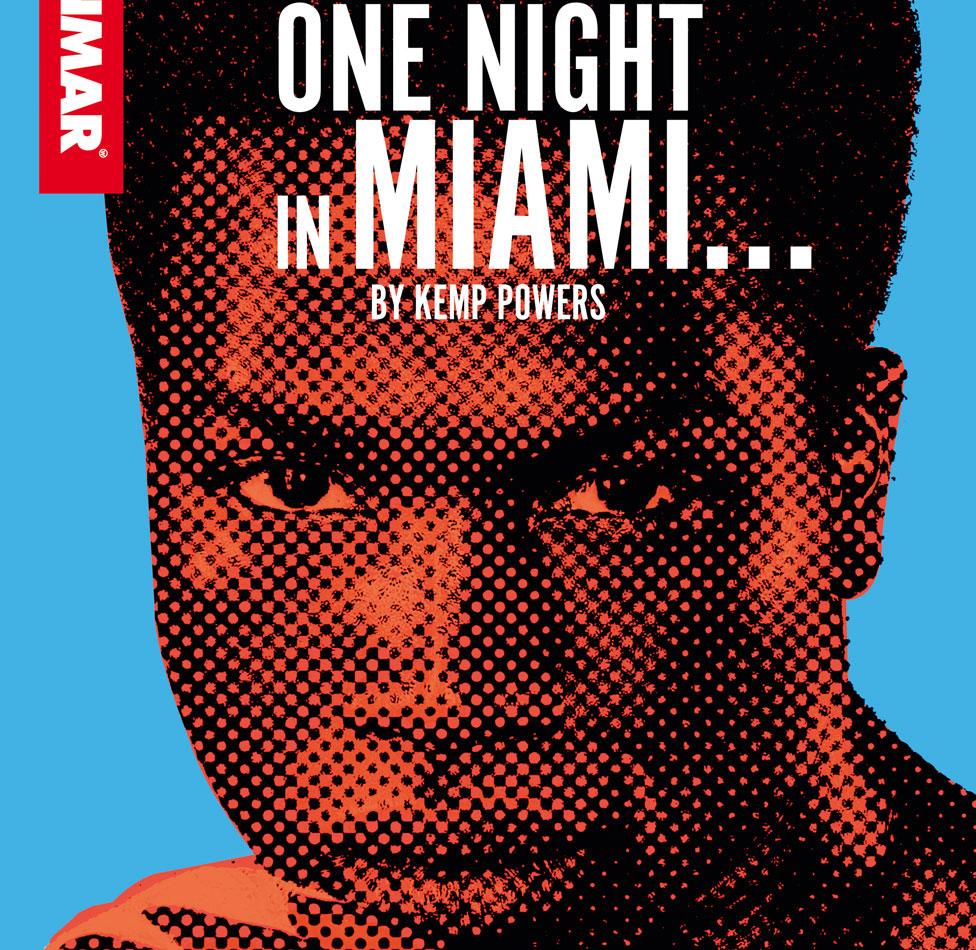
Dirisu says he wants to see more diversity but adds: "It's not just a matter of creating all-black environments and getting more black faces on to the stage that way.
"I don't think you solve the diversity issue by just putting on more black plays. It's more a matter of reflecting the world that we live in - and that's not all black or all white.
"In Shakespeare or in new plays you should see the faces that you see walking down the street - that's the way forward."
Ajala nods in agreement: "And London in particular is a magnificent melting pot: our theatre has to reflect that."
'Long way to go'
Arinze Kene plays Cooke - and gets to sing some of his music. Kene stars with Russell Tovey in the film The Pass, which is about to be released. His career is taking off. He thinks the issue of diversity in casting is improving - but he still sees problems.
"The fact that the situation is getting better shows not how great things are now, but only that they used to be even worse. We've got a long way to go."
As an American, Battiste has a slightly different take on the issue.
"It's not just a matter of who's on stage," he says. "Back home the whole infrastructure has been changing - though it's taken time to get there. You have to think about who the artistic directing staff is or who's on the board of directors and you have to look at the outreach.
"You don't have the ability to tell these stories unless you are actively pursuing the new writers. There are a whole lot of writers out there who need to be heard."
One Night in Miami is playing at the Donmar Warehouse.

Follow us on Twitter @BBCNewsEnts, external, on Instagram, external, or if you have a story suggestion email entertainment.news@bbc.co.uk, external.
- Attribution
- Published25 February 2014
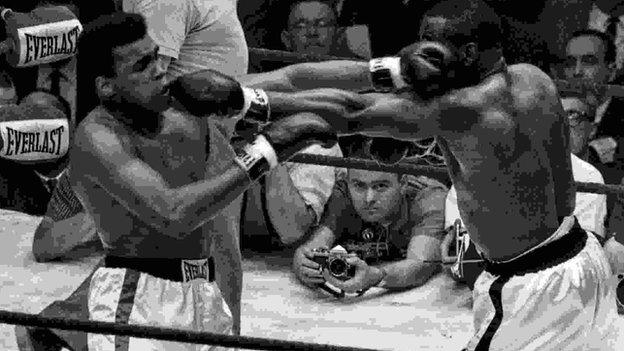
- Published4 June 2016
